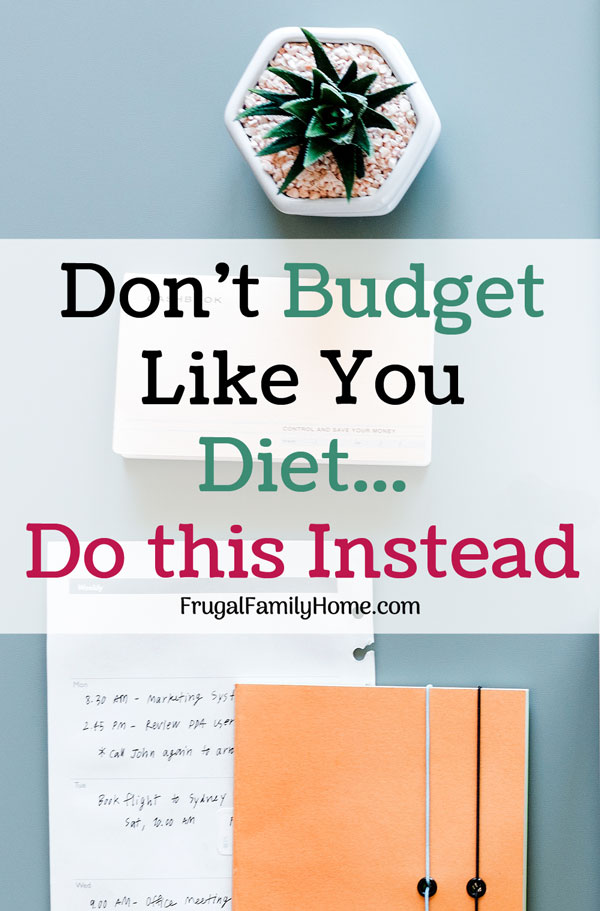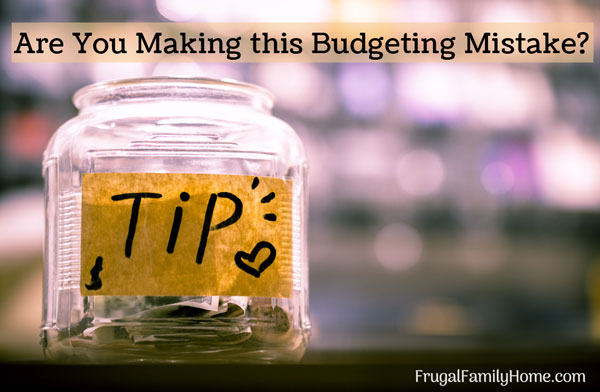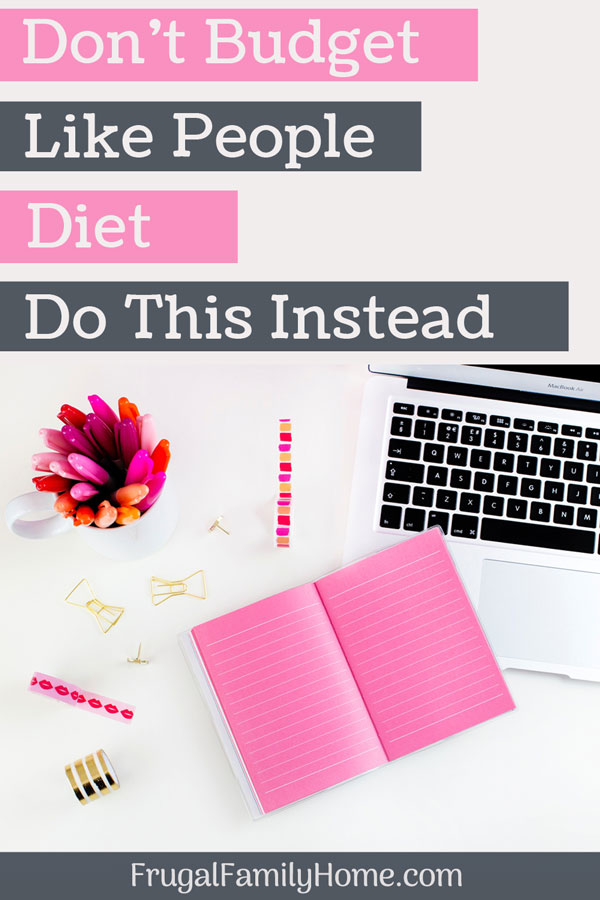Don’t Budget Like You Diet, Do This Instead
If you budget like most people diet it won’t help you get out of debt. Keep reading and I’ll explain more.
How Most People Diet and How it Applies to Budgeting
If you’ve been on a diet, you know what it’s like. It’s exciting to start something new. You get to talk to all of your friends about it. You make big changes and swear to yourself, this time you will stick with it.
And you do you stick with it long enough for friends and co-workers to see a change. They might comment that you look so good. And might ask what you are doing. You love the attention and it makes you feel like, you’ve really done well.
Then it happens.
You slip up. You have a cookie because well one little cookie won’t hurt.
That turns into a piece of cake, chocolate, or candy. You feel you’ve blown it so you might as well eat what you want and start again on Monday. Monday rolls around and your resolve just isn’t as good as the first time you started.
And finally, you give up and go back to your old ways. You want to change but it all seems so hard.
Well, that is how most people budget too.
They realize, I’m in way too much debt. I have to do something. They make radical changes to their spending.
They stop going out; they stop eating out. They stop spending all together. And by sheer willpower they hold it together to dig themselves a little out of debt. Maybe even get a small emergency fund set up.
But then it becomes hard. They long to go shop, to go out to eat. To do something fun, because they are so tired of this boring hard life the budget has put them into.
They slip back into their old ways and finally they are back right where they started.
But it doesn’t have to be like that at all.
You don’t have to budget like most people diet, there is a better way to go about it.
Listen to the Podcast to find out what to do instead. Don’t have time to listen? Subscribe to our podcast so you can listen later and check out the show notes below…
Subscribe: Apple Podcasts | RSS
Show Notes
There are Two Perspectives for Dieting and Budgeting
Perspective One,
It’s all or nothing. I need to change everything all at once. I need to stop shopping, stop eating junk food, etc. I have to stick to this diet or this budget and I can’t slip up at all. Because once I slip up that’s it I’ve ruined it and I might as well give up at least for now.
Perspective Two,
I’m in this for the long run. I want to change because it will be good for me and for my family. I will stop eating junk food because I want to be healthy. I will stop overspending each month because I want financial security.
I know I need to make changes and those changes will take a while. I need to change the way I think as much as I need to change what I do. It’s a process.
A new thing to learn, and I will slip up and it’s ok. I’ll learn and move on. No need to dwell on it.
Which perspective do you think works the best?
If you said the second one you’d be right. Now let’s talk about how you can set yourself up for success with budgeting.
How to Budget for Long Term Success and Financial Freedom
Start by Making a Reasonable Budget
It might feel great to make a bare-bones budget and try to squeak by on as little as you can but that is a recipe for disaster.
Instead, you want to cut your spending a little at a time.
First determine what you are spending right now. Try to cut back on non-essentials, like eating out and entertainment first.
Stop Shopping
Next stop shopping. Shop only for food and things you absolutely need. If you don’t go shopping, you won’t spend money. If you are an online shopper, stay off sites like Amazon and Target you usually shop at.
Tell yourself you are going on a shopping fast and stick with it for a while.
Conserve as Much as You Can
Try to conserve money around the house. Turn down the thermostat, turn off lights that aren’t in use. Take shorter showers do what you can to cut back on your utilities.
You may think it won’t save you much but it can.
Build an Emergency Fund
As you free up a little money each month, save it. Save as much as you can until you build a good emergency fund of at least $1000.
Then if a true emergency comes up you’ll be prepared.
Focus on Your Goals
When you have a weak moment and you want to buy something just because you’ve been good about following your budget I want you to talk with yourself.
Ask yourself, what are the benefits of spending money right now. Then ask yourself, what are the benefits of saving that money.
When you weigh the decision to spend or save, it can become easier to see the benefits of saving will reach far into the future for you.
Start now by making small incremental changes in how you spend.
Soon if you stick with it and don’t make it an all-or-nothing venture in your head, you’ll see the tide of your money change. Little by little washing away your debt and building your savings. For a brighter future.
How do you currently budget? Is it all or nothing or do you give yourself grace to go off budget occasionally?
More Help with Budgeting
How to Set up a Budget Step by Step



